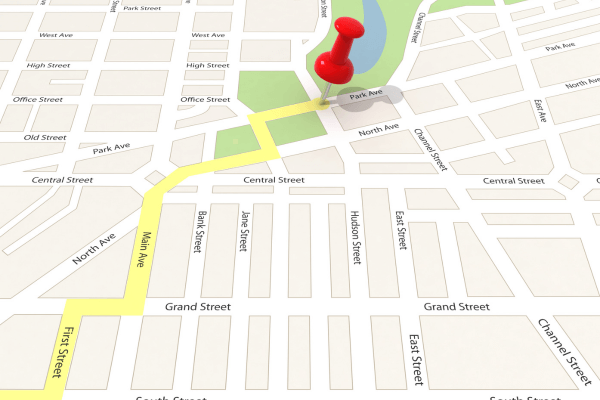Discovering the World of Virtual Assistants: Alexa, Siri and Google Assistant
Virtual assistants have become an integral part of our daily lives, making tasks easier, answering questions, and even entertaining us.
With the evolution of technology, three of the most popular virtual assistants are Alexa, Siri and Google Assistant.
In this article, we’ll take a deep dive into these virtual assistants and discover how they work, what they can do for us, and how they’re shaping the future of human-computer interaction.
Alexa: Amazon's Assistant
THE Alexa, developed by Amazon, is one of the best-known and most widely used virtual assistants in the world.
She is widely recognized for her smart speaker device, the Amazon Echo. Alexa is capable of performing a wide variety of tasks, from playing music to controlling smart home devices like lights and thermostats.
To get the most out of Alexa, simply say “Alexa” followed by a command or question. The virtual assistant responds promptly and is always ready to help. Alexa can also be customized with additional skills that expand its capabilities.
Siri: Apple's Personal Assistant
THE Crab, developed by Apple, is known for its presence in the company's devices, such as iPhones, iPads and Macs.
She is a virtual assistant that can perform useful tasks such as sending messages, creating reminders, setting alarms, and providing information about the weather, news, and more.
Siri is activated with a simple voice command, “Hey Siri,” followed by your question or request. It is deeply integrated into the Apple ecosystem and can control apps and settings across your devices.
Google Assistant: The Intelligence of Google
THE Google Assistant Google Assistant is Google's answer to virtual assistants, and it's present in a variety of devices, including Android smartphones, smart speakers, and even cars. Google Assistant is highly effective at searching the web and answering general questions.
Simply say “Ok, Google” or “Hey, Google” to activate the Assistant and start asking questions or asking commands. It can be used to navigate apps, send messages, set alarms and reminders, and control compatible smart home devices.
Comparing Virtual Assistants
Now that we have briefly learned about Alexa, Siri, and Google Assistant, let's take a closer look at their capabilities and features:
Voice Recognition
- Alexa: Alexa has excellent voice recognition, even in noisy environments, thanks to its high-quality microphones.
- Crab: Siri also has good voice recognition, especially on Apple devices where it is highly optimized.
- Google Assistant: Google Assistant is known for its accurate speech recognition, thanks to the vast amount of training data that Google has.
Main Features
- Alexa: Alexa shines at controlling smart home devices and integrating with Amazon services like Amazon Prime and Amazon Music.
- Crab: Siri excels at Apple-related tasks like sending messages, setting up calendar appointments, and interacting with iOS apps.
- Google Assistant: Google Assistant shines in web search, providing detailed answers and contextual information to general questions.
Customization and Skills
- Alexa: Alexa can be customized with a variety of Skills developed by third parties, expanding its functionality.
- Crab: Siri is highly integrated into the Apple ecosystem and can integrate seamlessly with iOS apps and settings.
- Google Assistant: Google Assistant has a wide range of integrations with third-party apps and services, allowing for high customization.
Compatible Devices
- Alexa: In addition to Echo devices, Alexa is available on a variety of third-party products, expanding its accessibility.
- Crab: Siri is exclusive to Apple devices such as iPhones, iPads, and Macs.
- Google Assistant: Google Assistant is available on Android devices, smart speakers, cars, and more, giving you a wide range of options.
Frequently Asked Questions about Virtual Assistants
Here are some frequently asked questions about virtual assistants:
How do virtual assistants work?
Virtual assistants work through natural language processing (NLP) and speech recognition algorithms. They listen to users’ commands or questions, process the information, and provide answers or perform actions based on what was requested.
Do virtual assistants store personal information?
Yes, virtual assistants can store personal information, such as command history and user preferences, to improve the experience and provide more relevant results. However, companies usually have strict privacy policies to protect this data.
Are virtual assistants safe?
Virtual assistant developers implement strict security measures to protect users' privacy. It's important to keep your devices up to date and follow recommended security guidelines.
Is it possible to disable a virtual assistant?
Yes, it is possible to disable a virtual assistant on devices that support it. You can usually do this in the settings of the device or associated app.
Conclusion
Virtual assistants like Alexa, Siri, and Google Assistant are shaping the way we interact with technology and the world around us. They make our lives more convenient, efficient, and informative.
Each assistant has its own characteristics and strengths, catering to different needs and preferences.
As technology continues to evolve, we are likely to see even more advancements in the field of virtual assistants.
These innovations promise to make our everyday lives even more connected and intelligent.
So whether you're an Amazon enthusiast, an Apple fan, or a Google user, there's a virtual assistant waiting to make your life easier.
Remember, when using virtual assistants, it's important to keep privacy and security in mind by following best practices and adjusting settings to suit your preferences.
Ultimately, choosing which virtual assistant to use depends on the technology ecosystem you prefer and the tasks you want to accomplish.
Discover the world of virtual assistants and find the perfect digital partner for your needs.






